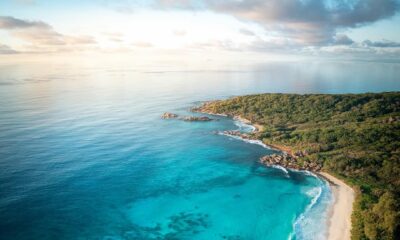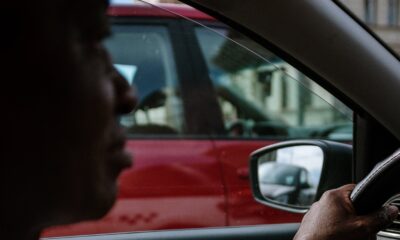Features
Agbonmire Ifeh: The Sixth Child May Just Save the Family
The adoption of virtual reality tours for all of our key tourist attractions is a bankable idea. This will bypass our security issues and militate against lockdown scenarios. This will require some capital investment in technology and our internet connectivity but it will be a good investment. These are investments we will have to make at the end of the day because all our sectors need a fast internet connection.
 Nigeria’s tourism sector is the sixth child in a set of ten children in a dysfunctional family. It is easy for this child to be ignored in the scheme of things. The first child gets the most attention, followed by the last child.
Nigeria’s tourism sector is the sixth child in a set of ten children in a dysfunctional family. It is easy for this child to be ignored in the scheme of things. The first child gets the most attention, followed by the last child.
Agriculture is the first child – it used to be the toast of the country before the last child, the oil and gas sector, took center stage. The rest are left to fight for attention.
Our tourism sector is in shambles. This COVID-19 pandemic finally brought the sector down to its last breath. All the numbers are red. The lockdown ensured that tourist attractions and hospitality businesses were closed down because they were deemed unessential. It is true that tourism is not essential for survival – it is people who are alive that can travel, but we need to consider how to alleviate the plight of the sector when we are done with the lockdown and the ban on interstate travel.
The investors, practitioners, workers, and stakeholders may have left to other sectors, seeing how it was left to the dogs during this pandemic. Naturally, people won’t stay in a place that doesn’t yield profit. There will definitely be a movement to essential industries like agriculture, power, and oil & gas.
The sector has been hampered for a long time by the structure and policies running it. In simple terms, the government has no business running a tourism business. The nature of our government has always been rent collection with utter disregard for productivity, performance, and profitability. Nepotism and incompetence are the default mode of our political leaders and their lack of vision and discipline is the reason why there has been no growth in the sector for decades, compared to countries with similar potentials.
The first step to radically transform the sector is for the Federal and State Government to hand over all the tourist attractions in their care to private bodies for professional management. The government should only regulate and formulate policies that will enhance the growth of the sector. The Federal Government needs to fix the insecurity issues that have hampered the growth of tourism in Nigeria.
I remember my last visit to the Obudu ranch, we got there only to discover that the workers were on strike because of unpaid salaries. We couldn’t stay in the hotel or access most of the facilities. This can’t happen in privately run places like Lekki Conversation Center. The default thinking of Nigerian government officials is consumption with scant regards for revenue generation and professionalism. As far as oil money is coming in, they’re good to go.
The second step will be the digitization of the sector. This way, the sector can be patronized at all seasons. The tools are already available and the practice is currently taking place in developed countries. Some countries were offering virtual tours of museums and places. This ensured that revenue still flowed to these locations in spite of the economic downturn. In Nigeria, we are reactive when it comes to technology. We embrace technology when we no longer have a choice. Just look at how working from home and using the video call software for an official meeting has become a thing when these things were already in use in other climes.
We really need to be proactive in our thinking and orientation. We need to constantly seek for ways to do things better. There should be a mental model of crafting incremental changes and improvements in ways we do things. The sector that knows how to do this well is the private sector. The competition inherent in the private sector is one that requires you to evolve or die.
Things are bad and look grim, but death is an opportunity to be reborn again. We can undergo metamorphism just like a caterpillar to a butterfly. It is time for the government and all stakeholders to design a new tourism sector that can be shockproof and be accessible to all. This will mean the government will strictly play its role as a regulator.
The adoption of virtual reality tours for all of our key tourist attractions is a bankable idea. This will bypass our security issues and militate against lockdown scenarios. This will require some capital investment in technology and our internet connectivity but it will be a good investment. These are investments we will have to make at the end of the day because all our sectors need a fast internet connection.
We can also conduct real-time drone and camera tours in our tourist locations. A tour guide can go to all the spots for us in a site like Obunike Cave in real-time, while we stay at home and experience what he is encountering. This won’t be like the real-life experience of walking to all the spots by yourself, but this will be suited to the situation we find ourselves in right now, especially when situations like this can reoccur.
The way the United Arab Emirates diversified its economy from oil is the example we should replicate. They are well protected from any oil price shock. They made heavy investments in tourism – they sent the sixth child to a good school and now she can take care of the whole family. This is what we ought to do after this pandemic.





















